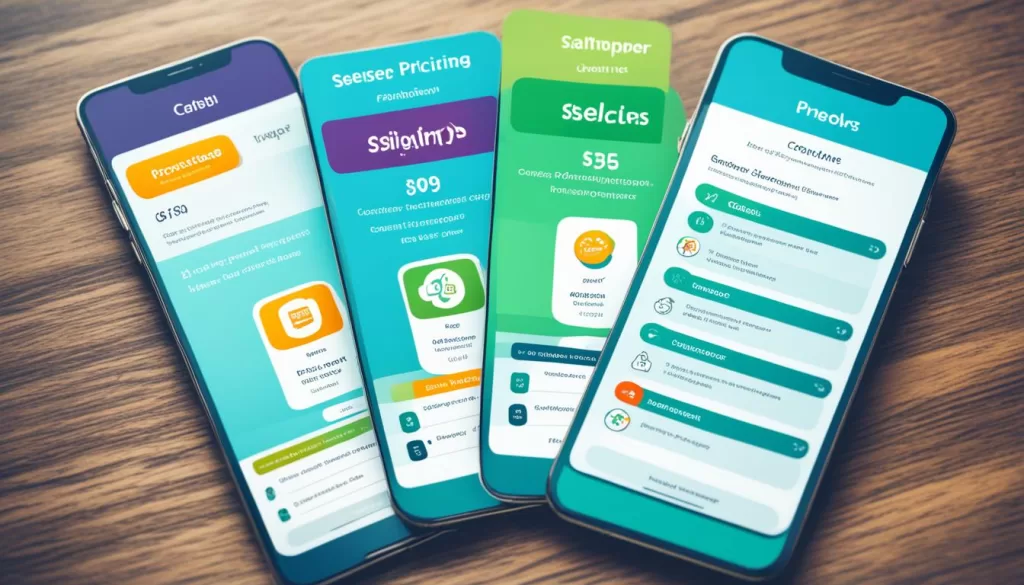Rosetta Stone vs Duolingo vs Babbel: Best Way to Learn Japanese
When it comes to learning a new language, there are countless options available, but how do you know which one is the best fit for you?
In this article, we will dive deep into the popular language learning apps: Rosetta Stone, Duolingo, and Babbel, and compare their features to help you determine the best way to learn Japanese. But here’s a question to ponder: Are these apps really effective, or is traditional language learning still the way to go? Let’s find out.

Babbel: A Structured Approach to Language Learning
Babbel offers a structured approach to language learning, catering to learners of all proficiency levels. The platform’s focus on grammar-based lessons helps learners build a solid foundation in their target language. Its structured approach ensures a systematic progression that covers essential language skills and concepts.
One of Babbel’s strengths lies in its clear explanations and exercises, which are designed to enhance language proficiency. By providing concise explanations and offering interactive activities, Babbel enables learners to practice and reinforce their understanding of grammar rules and language structures.
With Babbel, you can expect a well-organized curriculum that guides you through the different aspects of language study. The courses are designed to meet specific learning goals and improve overall language proficiency. Whether you’re a beginner or an advanced learner, Babbel provides a structured pathway for continuous language development.
The Benefits of Babbel’s Structured Approach
- Clear explanations of grammar rules and language concepts
- Interactive exercises to reinforce learning
- Systematic progression from beginner to advanced levels
- Targeted practice to improve language proficiency
- Comprehensive curriculum covering essential language skills
By following Babbel’s structured approach, learners can develop a solid understanding of grammar and language mechanics. This serves as a strong foundation for effective communication and further language learning.
Whether you’re studying a new language for personal or professional reasons, Babbel’s structured approach ensures that you gain the necessary skills and proficiency to communicate effectively in real-life situations.
Rosetta Stone: A Well-Rounded Language Education
Rosetta Stone is a leading language education platform that offers a comprehensive and well-rounded learning experience. With a focus on immersive learning, the platform aims to develop all language skills, including speaking, listening, reading, and writing. Instead of relying on translations, Rosetta Stone encourages learners to think directly in the target language, which helps build fluency and natural conversation skills.
The goal of Rosetta Stone is to take learners to the tourist level of language proficiency, where they can confidently communicate during travel and everyday situations. The program provides a structured curriculum that gradually introduces new vocabulary, grammar concepts, and cultural insights.
Immerse yourself in the language: One of the key features of Rosetta Stone is its immersive learning approach. The platform uses real-life scenarios, interactive exercises, and audio recordings to create an environment that replicates natural language acquisition. This helps learners develop an instinctive understanding of the language and enhances overall fluency.
Build confidence in speaking and understanding: Rosetta Stone places a strong emphasis on oral communication. The platform incorporates speech recognition technology to provide immediate feedback on pronunciation, helping learners improve their speaking skills. Additionally, the program includes listening exercises that train learners to understand the language in various contexts and accents.
Well-rounded language skills development: To ensure a comprehensive learning experience, Rosetta Stone covers various language skills, including vocabulary, grammar, reading comprehension, and writing. The program introduces new words and phrases in context, helping learners understand their usage and meaning.
Table:
| Key Features | Strengths |
|---|---|
| Immersive learning approach | Develops natural fluency |
| Speech recognition technology | Improves pronunciation skills |
| Comprehensive curriculum | Well-rounded language skills development |
Overall, Rosetta Stone provides a well-rounded language education that focuses on immersive learning, fluency-building, and developing all language skills. Whether you’re a beginner or have previous language learning experience, Rosetta Stone offers a structured and effective approach to help you reach your language goals.

Duolingo: Gamified Language Learning
Duolingo is a popular language learning app that has gained recognition for its unique approach to language acquisition. By incorporating gamification into its platform, Duolingo offers an engaging and interactive experience for learners.
The app uses game-like activities, rewards, and progress tracking to keep learners motivated and focused on their language learning journey. This gamified approach provides short-term motivation, making it an excellent choice for beginners or those looking to acquire basic language skills.
With Duolingo, you can expect to learn vocabulary, grammar, and pronunciation through a variety of exercises, including multiple-choice questions, translation tasks, and listening exercises.
Table: Duolingo’s Gamified Language Learning Features
| Features | Description |
|---|---|
| Game-like Activities | Duolingo incorporates game elements such as levels, achievements, and a point system to make learning fun and engaging. |
| Progress Tracking | Learners can monitor their progress, receive immediate feedback, and track their improvement over time. |
| Short Lessons | Duolingo’s lessons are designed to be quick and bite-sized, allowing learners to fit language learning into their daily routines. |
| Diverse Language Options | Whether you want to learn Spanish, French, German, or any of the other 30+ available languages, Duolingo has you covered. |
While Duolingo is a fantastic tool for building and reviewing basic language skills, it may not be as effective for advancing to more intermediate or advanced levels of proficiency. The app’s focus on short-term motivation and game-like activities means that it may not provide the same depth of instruction and in-depth practice as other language learning platforms.
However, Duolingo can be a great supplement to your language learning journey, especially when used in combination with other resources and practice opportunities. The app’s accessibility and user-friendly interface make it an excellent starting point for anyone looking to embark on their language learning adventure.
Pricing and Membership Options
When it comes to pricing and membership options, both Babbel and Duolingo offer different choices to cater to your language learning needs.
Babbel Pricing
Babbel offers a flexible pricing structure that allows you to choose the subscription that suits you best. Here are the options:
| Membership Option | Pricing |
|---|---|
| Monthly Subscription | $6-10, depending on commitment length |
| Lifetime Access | One-time fee, access to all languages |
| Babbel Live | Additional monthly subscription fee |

Babbel Live is an exciting feature that offers group coaching for an enhanced learning experience. This additional service is available for an extra monthly subscription fee ranging from $50-100.
Duolingo Pricing
Duolingo offers a free version, but they also have a premium option called Duolingo Plus. Here are the details:
| Membership Option | Pricing |
|---|---|
| Duolingo Plus | $6.99 per month |
With Duolingo Plus, you’ll enjoy an ad-free experience and have the convenience of accessing content offline.
Now that you have the pricing and membership options for Babbel and Duolingo, you can choose the option that suits your preferences and budget.
Language Offerings
Both Babbel and Duolingo offer courses in several languages, including Dutch, English, French, German, Italian, Polish, Portuguese, Russian, Spanish, Swedish, and Turkish. Rosetta Stone also offers courses in these languages, with a focus on building a foundation in the target language.
| Babbel | Duolingo | Rosetta Stone |
|---|---|---|
| Dutch English French German Italian Polish Portuguese Russian Spanish Swedish Turkish | Dutch English French German Italian Polish Portuguese Russian Spanish Swedish Turkish | Dutch English French German Italian Polish Portuguese Russian Spanish Swedish Turkish |
Key Features and Strengths
When it comes to language learning, each platform has its own key features and strengths. Let’s explore what sets Babbel, Rosetta Stone, and Duolingo apart.
Babbel: Structured Approach and Grammar-Based Lessons
One of Babbel’s key features is its structured approach to language learning. The platform’s courses are designed for learners of all levels, from beginners to advanced. Babbel focuses on grammar-based lessons, ensuring a solid foundation in the target language. By providing clear explanations and engaging exercises, Babbel helps learners improve their language proficiency.
Rosetta Stone: Well-Rounded Language Education and Immersive Learning
Rosetta Stone’s strength lies in offering a well-rounded language education. The platform provides immersive learning experiences that aim to develop all language skills, including speaking, listening, reading, and writing. Rosetta Stone’s approach encourages learners to think in the target language rather than translating, building confidence in real-life conversations. The platform aims to take learners to the tourist level of proficiency.
Duolingo: Gamified Learning and Short-Term Motivation
Duolingo stands out with its gamified approach to language learning. The platform uses game-like activities to engage learners and provide short-term motivation. Duolingo’s interactive exercises, achievements, and leveling system make language learning enjoyable and addictive. It is particularly effective for building and reviewing basic language skills.
| Babbel | Rosetta Stone | Duolingo |
|---|---|---|
| Structured approach | Well-rounded education | Gamified learning |
| Grammar-based lessons | Immersive learning experiences | Short-term motivation |
| Clear explanations | Thinking in the target language | Interactive exercises |
| Helps improve language proficiency | Builds confidence in speaking | Makes learning enjoyable |
Each platform offers unique strengths, catering to different learning styles. Babbel’s structured approach and focus on grammar-based lessons are ideal for learners who want a solid foundation. Rosetta Stone’s well-rounded education, including immersive learning experiences, develops all language skills. Duolingo’s gamified learning and short-term motivation provide an enjoyable and addictive language learning experience. Consider your learning preferences and goals to choose the platform that aligns best with your needs.
Limitations and Weaknesses
While Babbel, Rosetta Stone, and Duolingo are all popular language learning platforms, each has its own limitations and weaknesses to consider. Understanding these drawbacks will help you make an informed decision about which app is best suited to your language learning needs.
Babbel’s Limited Languages
One limitation of Babbel is its limited selection of languages compared to other platforms. While Babbel offers courses in several popular languages, there may be some less commonly spoken languages or dialects that are not available. This can be a drawback for learners who have specific language preferences or niche language interests.
Rosetta Stone’s Focus on Beginner Level
Rosetta Stone’s primary focus is on beginner level content, which means it may not be as suitable for more advanced learners. While it provides a solid foundation in the target language, learners who are already at an intermediate or advanced level may find the content too basic. If you’re looking to advance beyond beginner level, Rosetta Stone may not offer the depth of material you’re seeking.
Duolingo’s Surface-Level Content
Duolingo’s gamified approach to language learning, while enjoyable and motivating for many learners, can lead to surface-level content. The focus on quick and bite-sized lessons means that some learners may struggle with applying their skills in real-life conversations. If your goal is to develop conversational fluency or reach a higher level of language proficiency, Duolingo’s content may not provide the depth and complexity needed to achieve those goals.
| Platform | Limitations | Weaknesses |
|---|---|---|
| Babbel | Limited language offerings | No advanced level content |
| Rosetta Stone | Limited focus on beginner level | Lack of advanced materials |
| Duolingo | Narrow content depth | Limited application in real-life conversations |
As seen in the table above, Babbel’s limitations lie in its limited language offerings and lack of advanced level content. Rosetta Stone’s weakness lies in its focus on beginner level content and the absence of advanced materials. Duolingo’s limitations include its narrow content depth and limited application in real-life conversations.
Understanding the limitations and weaknesses of each platform will help you make an informed decision about which app aligns with your language learning goals and preferences.
Choosing the Right Language App
When it comes to choosing a language learning app, it’s important to consider your specific language goals, learning preferences, motivation, and the knowledge you need to acquire. The app you choose should align with these factors to ensure an effective and enjoyable learning experience.
If you prefer a structured approach and want to focus on building grammar skills, Babbel may be the best choice for you. Babbel’s courses are designed to provide a solid foundation in the target language, with a strong emphasis on grammar-based lessons.
If you’re looking for a well-rounded language education and immersive learning experiences, Rosetta Stone is a great option. Rosetta Stone aims to develop all language skills by teaching learners to think in the target language and providing a comprehensive learning experience.
| App | Strengths |
|---|---|
| Babbel | A structured approach and focus on grammar-based lessons |
| Rosetta Stone | A well-rounded language education and immersive learning experiences |
If you enjoy gamified learning and short-term motivation, Duolingo may be the right fit for you. Duolingo offers a fun and engaging learning experience through game-like activities, providing instant feedback and encouraging regular practice.
Ultimately, the choice of the right language app depends on your individual preferences and goals. Consider what you value most in a language learning experience and choose the app that best suits your needs.
Conclusion
In conclusion, when it comes to learning Japanese, the best way to approach it depends on your individual preferences and goals. Babbel, Rosetta Stone, and Duolingo are all popular language learning apps that each offer unique features and strengths to cater to different learning styles.
If you prefer a structured approach and want to focus on grammar-based lessons, Babbel might be the best choice for you. With its well-rounded language education and immersive learning experiences, Rosetta Stone is a good option for those who seek a comprehensive understanding of the language. On the other hand, if you enjoy gamified learning and short-term motivation, Duolingo may be the right fit.
Consider your language learning needs, such as your goals, learning preferences, and the specific knowledge you want to acquire. By choosing the app that aligns with your preferences, you can create the most effective and enjoyable language learning experience for yourself. Whether you go with Babbel, Rosetta Stone, or Duolingo, each app can be a valuable tool on your journey to mastering Japanese.
Dickhead, your article said nothing. loser